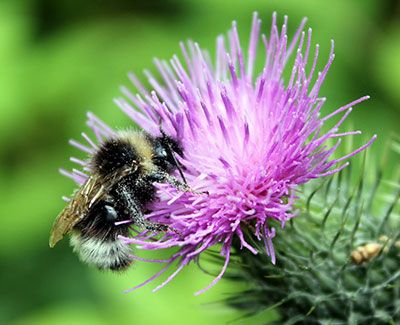International scholarships
More than £14 million in scholarships is available for international students commencing their studies in September 2026.
Find out more
- Faculty of Biological Sciences
- School of Biology
School of Biology
The School of Biology at the University of Leeds brings together academic staff, postdoctoral fellows, technical staff and research students to address urgent global challenges, from climate change and biodiversity loss to food security and sustainable agriculture. Our research spans the full scale of biological systems, from molecules to ecosystems.
We are committed to training the next generation of biologists through our undergraduate and postgraduate programmes, including BSc, MBiol, MSc, MRes and PhD opportunities - providing the knowledge and skills needed to tackle the biological challenges of the future.
Our academics
Our teaching
The School of Biology explores life at every level, from molecules to populations. Our teaching is focused on whole organism biology, grounded in cutting-edge research and designed to prepare you for a wide range of careers. You'll develop practical skills through hands-on lab work and immersive field experiences, gaining a deep understanding of how plants and animals’ function, adapt, and thrive in real-world environments.
You can also choose to study abroad for a year or get industry experience during a work placement.
Our programmes are designed to provide students with a strong foundation in biological principles. Taught by active researchers, students contribute to projects spanning fundamental biology to applied research with real-world impact. These projects address global challenges such as improving food security, tackling climate change, protecting biodiversity, and supporting both animal and human health. This experience ensures our graduates are well-prepared for a wide range of careers in research, conservation, environmental consultancy, science communication, and beyond.
Our research
The School of Biology delivers world-class research spanning molecular biology to ecosystems, tackling some of the most pressing global challenges. Our research informs national and international policy, contributes to global sustainable development goals, and supports civic engagement from local conservation partnerships to large-scale international collaborations.
We are active members of major interdisciplinary networks at Leeds, including water@leeds and the Global Food and Environment Institute (GFEI). We collaborate with NGO’s, industry and government to deliver real-world impact.
Our research is supported by a wide range of funders, including UKRI councils (BBSRC, NERC, EPSRC), the Wellcome Trust and the Leverhulme Trust.
Our research is organised into the four interconnected areas below.
Research pillars
Centre for Plant Sciences
Plant development, signalling, and stress responses linking fundamental discovery to crop improvement, sustainable agriculture, and net zero innovation.
More on Centre for Plant SciencesFuture Agri Systems
Data-driven, cross-disciplinary research to develop sustainable, circular, and climate-resilient food systems, from precision livestock and crop management to agroecology and bioremediation.
More on Future Agri SystemsOrganismal Health and Development
The mechanisms underpinning health, reproduction, development, and disease in animals and model systems, with applications in animal welfare, food production, and biotechnology.
More on Organismal Health and DevelopmentSustainable Ecosystems and Adaptation
How organisms and ecosystems adapt to environmental change, contributing vital insights into biodiversity conservation, invasive species, and evolutionary processes and informing both policy and practice.
More on Sustainable Ecosystems and AdaptationResearch Impact
We apply our research outcomes for societal benefit. Here are some examples of our high impact case studies:
Galapagos biosecurity – protection of unique UNESCO world heritage site
Research by Dr Simon Goodman and the Zoological Society of London and Ecuador has led to changes in national legislation on biosecurity in the Galapagos Islands.
More on Galapagos biosecurity – protection of unique UNESCO world heritage siteBiosecurity for invasive species in Yorkshire Dales
Professor Alison Dunn’s research has identified the most effective methods to improve biosecurity practices for different invasive species.
More on Biosecurity for invasive species in Yorkshire DalesBats and roads – evidence informed conservation practices
Professor John Altringham and Dr Anna Berthinussen's research on the conservation of bat species has informed new infrastructure developments.
More on Bats and roads – evidence informed conservation practicesCaspian seal conservation
Research by Dr Simon Goodman and colleagues has been recognised by the International Union for the Conservation of Nature and the United Nations Convention on Migratory Species.
More on Caspian seal conservation









